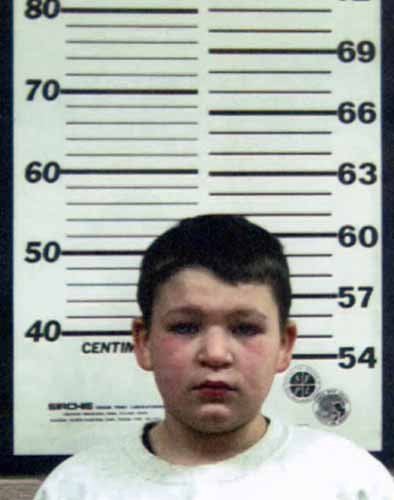When the 14 year-old old boy came home from school and found his mother on the floor badly beaten and unconscious, he decided to do something. He took a pistol from a drawer, marched into his mother’s bedroom where his drunken step-father had passed out on the bed, and fired point blank into the man’s skull killing him. Arrested and charged as an adult, the youth was taken to an adult jail to await trial.
The boy had been there only three days when defense attorney Bryan Stevenson met him. He was so traumatized that he could not answer any of the lawyer’s questions. He’d been repeatedly sexually assaulted — so many times in that three day period in jail that he’d lost count of how many men had abused him. All the boy did for two hours was sob as Stevenson held him. 
This tragic story was one of several that Bryan Stevenson described in an impassioned speech that he gave last week during an Advanced Judiciary Academy conference at the University of Illinois in Champaign/Urbana. I’ve written about Bryan before on my blog. He’s an inspirational advocate.
Bryan and I were invited to speak to the Illinois judges about how wealth and poverty influence our criminal justice system. We’d been invited to lecture because of my book, CIRCUMSTANTIAL EVIDENCE: Death, Life and Justice in a Southern Town. For those of you who might not have read it, CIRCUMSTANTIAL EVIDENCE is a true story about the murder of a popular, white teenager in the Alabama town that inspired the novel, TO KILL A MOCKINGBIRD. A poor, uneducated, black man named Walter “Johnny D.” McMillian was convicted of the killing which happened inside a dry cleaners on a busy Saturday morning. McMillian was sentenced to death after two witnesses testified that they’d seen his truck parked outside the cleaners at the time of the murder and another witness claimed he actually see McMillian standing over the dead girl during a robbery. It seemed as if McMillian had been caught red handed.
But after Stevenson began investigating the case, a different picture emerged. Both witnesses who’d claimed to have seen the truck recanted their stories. Both had received reward money in return for testifying. The eyewitness who swore that McMillian had murdered the girl was proven to be a liar. Even worse, Stevenson discovered that the prosecution had hidden crucial evidence that proved McMillian was innocent. During the murder, he had been at his home miles away helping host a fish fry. Two law enforcement officers had stopped there that day but had failed to come forward to substantiate his alibi. Put simply, McMillian had been framed.
Although Bryan proved McMillian was innocent, Alabama officials refused to free him. It took a 60 Minutes segment about the case to shame local and state officials into releasing an innocent black man from death row.
I spoke first at last week’s conference and described the murder and investigation. Bryan spoke after me about the case but quickly moved to such broader issues as the number of persons with mental illnesses now being incarcerated and his latest campaign to stop pre-teens and teenagers under age fifteen from being charged as adults when they commit crimes. Many of these children are sentenced to life in prison. His work as the executive director of the Equal Justice Initiative prompted the judges in the audience to do something that Judge Susan Hutchinson, who helped organize the academy, said she’d never witnessed before.
They gave him a standing ovation.



